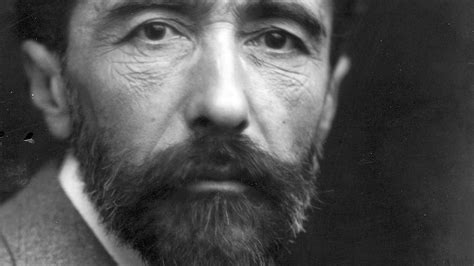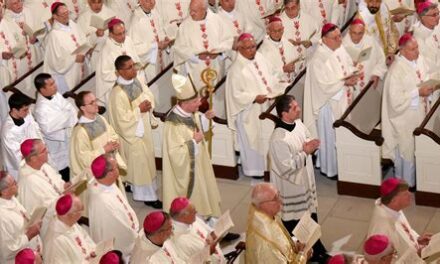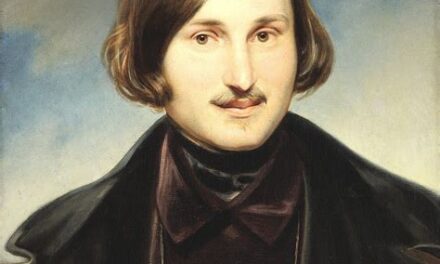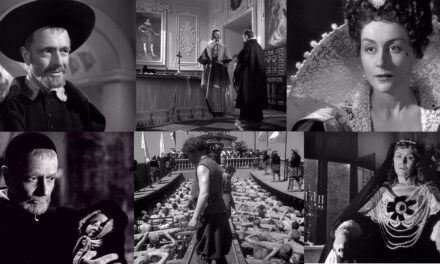Joseph Conrad is surely one of the greatest late-nineteenth and early-twentieth century novelists, quite likely one of the greatest of all time. His clear, often majestic prose remains all the more impressive because he was not a native of England or any other English-speaking country. Born Jozef Teodor Konrad Korzeniowski in Poland, he learned our language serving in the merchant marine, as one source reports, by reading Shakespeare and the Times—although I suspect being surrounded by a few British seamen helped matters along. A painfully slow writer, he eventually produced some of the classics of fiction: the novels Heart of Darkness, Lord Jim, Nostromo, The Secret Agent, and Under Western Eyes, as well as shorter works such as Typhoon and The Secret Sharer.
During my years of teaching English, I was always surprised to find how little Conrad was read or even heard of. I considered it almost a duty as well as a pleasure to teach Heart of Darkness in English Literature Survey and Lord Jim in my grad class on late modernity just to make sure that a few students learned something of this marvelous author before leaving school. Truth be told, I still have a lot to learn myself. I’ve yet to read Nostromo, and I’ve begun The Secret Agent only recently.
This last work, dating from 1907, may sound like a potboiler, but it is Conradian, with his signature dark musings on the inner workings of the soul. A few things caught my attention in the book that I want to mention. The plot involves the activities of a band of anarchists, likely eastern European or Russian, who decide to blow up the observatory at Greenwich. Why such a target? As Mr. Vladimir, an obscure, somewhat daunting figure attached to the unnamed embassy, explains to one of the anarchists, blowing up a cathedral or even a government building at Westminster would not carry much shock effect—other than the concussion from the explosion. But attacking science, of which Greenwich was a prime symbol, would get the public’s attention.
When I read this, I couldn’t help reflecting that things haven’t changed much in the last hundred-plus years. To our media nowadays, a church’s being fired is minor news unless the arson can be attached to some more heinous crime (racism, for example). As for government buildings, the same applies. If an Antifa mob burns a federal building to the ground in Portland or Seattle, the crime isn’t newsworthy. But uncover a plot to level the McDonald Observatory or hack NASA, and the public (or the public the media chooses to interview) would be aghast. Conrad certainly understood the gods of the modern age.
In addition, Conrad perceives quite correctly the mind of the anarchist. In the novel’s opening chapters, we meet Chief Inspector Heat, who shadows the anarchists; he was earlier in his career “concerned with the more energetic forms of thieving.” Thieves are men he understands; they’re rather like him but on the wrong side of the law. Once caught, almost to a man they submit to the dictates of justice. In other words, they and Inspector Heat inhabited the same moral world.
Not so the anarchist, who will destroy for the sake of principle. There stands (and this is Conrad, not Camus) something monumentally absurd and quintessentially modern. In Heart of Darkness, Marlow, Conrad’s chief narrator, considers the rapacious tendencies of men (Roman conquerors, for example), concluding that, wicked though they may be, their vices are “red-blooded.” But the folly, the sheer absurdity, of so much destructive activity in the modern world is, according to Marlow and here to Inspector Heat, “exasperating beyond endurance.”
Almost as exasperating is the strange adulation such absurd people inspire among people who should know better. One of the anarchists, Michaelis, is a favored guest at an aristocratic lady’s soirées. She grasps the fact that he wants to wreck the system, but since it’s capitalist and tends to elevate formerly low people to a high status they really don’t deserve, she can accept that. Anyhow, the disappearance of the “system” wouldn’t affect her; destruction is for others. Such is the “gross incarnation of humanitarian passion” that Conrad depicts sixty years before Tom Wolfe wrote Radical Chic.
Plus ça change, plus c’est la même chose (The more things change, the more they remain the same.) Maybe so. But I have a sneaking hunch that even if in the ancient world a Lucretius could posit, for all intents and purposes, an ultimately meaningless human existence, he would never assert an absurd one. Conrad was, sad to say, something of a nihilist, desperate to discover some moral ground on which man might securely plant his feet. I can’t say that I’m convinced he found it, but I will acknowledge he tried. The big change in modernity or post-modernity is destruction for a principle, usually a very foolish one. To learn how that sad state of affairs affects us—albeit from a very non-Christian mind—is one reason, among many, for reading Joseph Conrad.















Nicely wrought, Mr. Curtis.
In seeking literary prophecies of our times–or, at least, our most recent three years–I usually find myself within Dostoevsky, specifically his “Demons/The Devils/ The Possessed.” I’d someone overlooked a book I know much better, “The Secret Agent.”